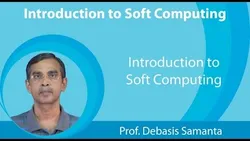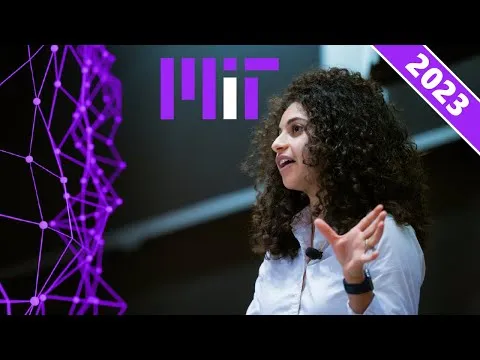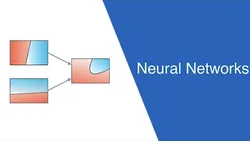
Introduction To Soft Computing 
This course will provide an introduction to the fundamentals of soft computing and its applications. ▼
ADVERTISEMENT
Course Feature
![]() Cost:
Cost:
Free
![]() Provider:
Provider:
Youtube
![]() Certificate:
Certificate:
Paid Certification
![]() Language:
Language:
English
![]() Start Date:
Start Date:
On-Demand
Course Overview
❗The content presented here is sourced directly from Youtube platform. For comprehensive course details, including enrollment information, simply click on the 'Go to class' link on our website.
Updated in [June 30th, 2023]
This course, Introduction to Soft Computing, provides an overview of the fundamentals of soft computing and its applications. It is intended for students from CSE, IT, EE, ECE, CE, ME, etc. The course will cover topics such as fuzzy logic, neural networks, evolutionary computing, swarm intelligence, and their applications in various industries. Students will gain an understanding of the principles of soft computing and its applications in various industries, such as IT companies. By the end of the course, students will be able to apply soft computing techniques to solve complex problems in real-time.
[Applications]
After this course, students can apply the knowledge gained to develop solutions to complex problems in real time, adapt to changing scenarios, and implement parallel computing. They can also use soft computing to develop solutions in areas such as medical diagnosis, computer vision, hand written character recognition, pattern recognition, machine intelligence, weather forecasting, network optimization, and VLSI design.
[Career Paths]
One job position path that is recommended to learners of this course is a Soft Computing Engineer. A Soft Computing Engineer is responsible for developing and implementing soft computing algorithms and techniques to solve complex problems. They must have a strong understanding of the principles of soft computing, including genetic algorithms, evolutionary computing, ant colony optimization, particle swarm optimization, and neural networks. They must also be able to design and develop software applications that utilize these techniques.
The development trend for Soft Computing Engineers is to become more specialized in their field. As the technology advances, Soft Computing Engineers will need to become more knowledgeable in the specific algorithms and techniques they are using. They will also need to stay up to date on the latest developments in the field, as well as the latest trends in software development. Additionally, Soft Computing Engineers will need to be able to work with other professionals, such as data scientists, to ensure that the solutions they develop are effective and efficient.
[Education Paths]
The recommended educational path for learners is to pursue a degree in Soft Computing. This degree typically involves courses in computer science, mathematics, and engineering, as well as courses in soft computing topics such as artificial intelligence, machine learning, neural networks, fuzzy logic, evolutionary algorithms, and swarm intelligence. Students will also learn about the application of soft computing techniques to various fields, such as robotics, natural language processing, computer vision, and data mining. The degree will also cover topics such as software engineering, computer architecture, and computer networks.
The development trend of this degree is to focus on the application of soft computing techniques to real-world problems. This includes the development of new algorithms and techniques to solve complex problems, as well as the development of new tools and technologies to facilitate the implementation of soft computing solutions. Additionally, the degree will focus on the development of new methods for the analysis and interpretation of data, as well as the development of new methods for the visualization of data. Finally, the degree will also focus on the development of new methods for the integration of soft computing techniques into existing systems.
Course Provider

Provider Youtube's Stats at AZClass
Discussion and Reviews
0.0 (Based on 0 reviews)
Explore Similar Online Courses

New Machine: Avid Benchtop Pro CNC with ClearPath and Centroid Acorn

Typography & Design

Python for Informatics: Exploring Information

Social Network Analysis

Introduction to Systematic Review and Meta-Analysis

The Analytics Edge

DCO042 - Python For Informatics

Causal Diagrams: Draw Your Assumptions Before Your Conclusions

Whole genome sequencing of bacterial genomes - tools and applications

MIT 6S191: Recurrent Neural Networks Transformers and Attention

Neural Networks


Start your review of Introduction To Soft Computing